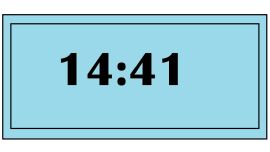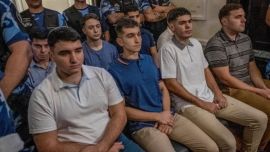In this electoral period, every local vote is nationalised. No matter whether it is a small town or the capital of a key province, the need to show triumphs (and highlight your rival’s defeats) leads to exaggeration being commonplace when it comes to showing electoral fortitude.
That is why, little more than three weeks ahead of the PASO primaries, Peronism and Juntos por el Cambio continue to focus on what may happen on Sunday July 23rd in the City of Córdoba and one week later during the last local elections before the national primaries.
In Córdoba, the leading mayoral candidates are Daniel Passerini, supported by Governor elect Martín Llaryora who responds to the governig party, and opposition candidate Rodrigo de Loredo, who in the last stretch was backed by both Horacio Rodríguez Larreta and Patricia Bullrich, along with former president Mauricio Macri.
Passerini made use of the final phase of the campaign to reiterate the criticism against his main rival over the issue of having two candidates on his list with close relatives involved in drug dealing cases. He also appeared with Llaryora and Governor Juan Schiaretti on Tuesday, during a tour of the Los Artesanos neighbourhood, southwest of the Capital and then closed the rally with the two of them.
“There’s a candidate more concerned with being the next governor than running the city. With Martín (Llaryora) we’ve already proven that working together we can make the city better. And that’s what we’ll continue to do if people vote for me on Sunday”, he pointed out.
De Loredo, in turn, chose to nationalise the contest by arriving at the General Urquiza square in the San Vicente de Bullrich neighbourhood. There he said that Juntos por el Cambio has been riding “a wave of growth that shows”, and that said, he is “the right person at the right time."
Elections and ruling party crisis in Chubut
On July 30th, Chubut will have elections without PASO primaries. Ignacio Torres (Juntos por el Cambio) will face Juan Pablo Luque (Arriba Chubut). What is new is that the ruling party has achieved unity after over 20 years to stop what the polls are calling an opposition triumph.
Luque, in a Kirchnerist nationwide style dismissing President Alberto Fernández, did the same by separating himself from Mariano Arcioni. “I have nothing to do with Arcioni. In the last election I shared a ticket with [Carlos] Linares”, he said.
There may be an upset in Chubut, since Peronism has ruled there for over two decades. The last census showed the province has 603,000 inhabitants. In order to win, the election is similar to that of the province of Buenos Aires, a simple majority will suffice and there is no runoff.
The crisis in the province has become a ruling party crisis, to the point that Arcioni could not stay first on the list for the Chamber of Deputies. This spot was taken by the current head of the National Aviation and Port Authority Police (PSA, in its Spanish acronym), José Glinski.
The other three candidates on the race for the governorship are César Treffinger (Por la Libertad Independiente Chubutense), Emilse Saavedra (Frente de Izquierda) and Oscar Pettersen (Generación por un Encuentro Nacional).
Consultancy Trespuntozero conducted a survey between July 1 and 9 that showed the top concern is education at 45.5 percent, corruption in second place at 13.3 percent, and inflation third at 12.3 percent.
Torres has the most positive image, at 45.1 percent, over 36,7 percent who consider it poor (with a +8.4 percent differential). He is followed by Luque, 36.5 percent positive and 40.7 percent negative (-4.2 percent differential); Gustavo Menna, 31.4 percent positive and 38.5 percent negative (-7.1 percent differential); Ricardo Sastre, 25.4 percent positive and 53.3 percent negative (-27.9 percent differential); Treffinger, 22.7 percent positive and 31.5 percent negative (-8.8 percent differential); and Mariano Arcioni, 22.3 percent positive and 73.7 percent negative (-51.4 percent differential).
The study shows that Chubut’s citizens are 54.5 percent in favour of changing the provincial governorship of Chubut Somos Todos, whereas 16.6 percent prefer the status quo, and 32 percent is undecided.
– TIMES/PERFIL
) percent

















Comments